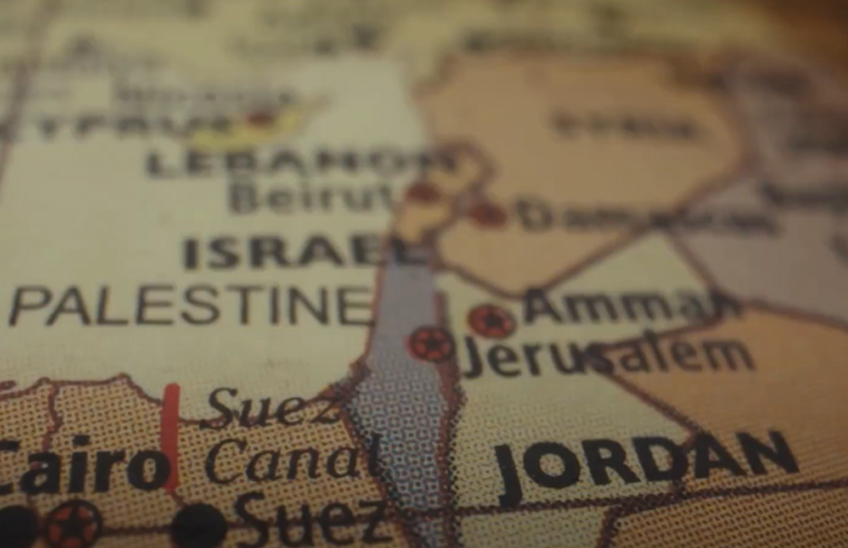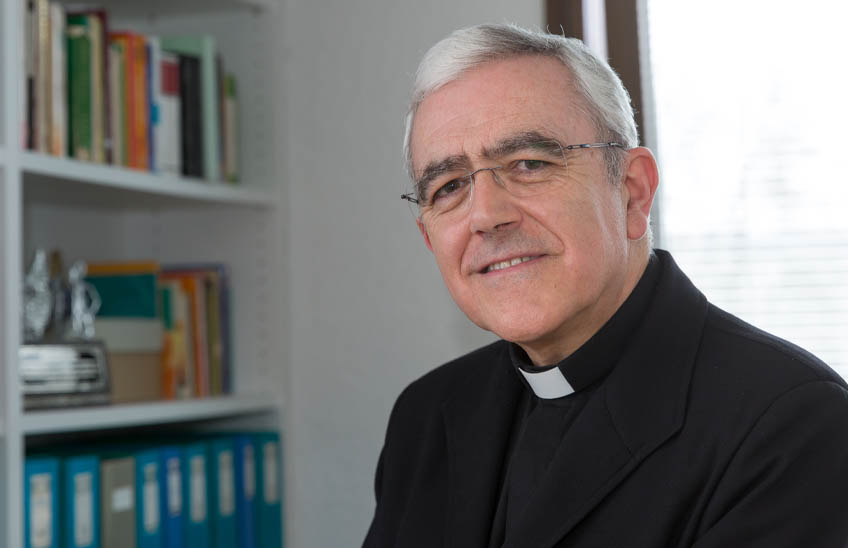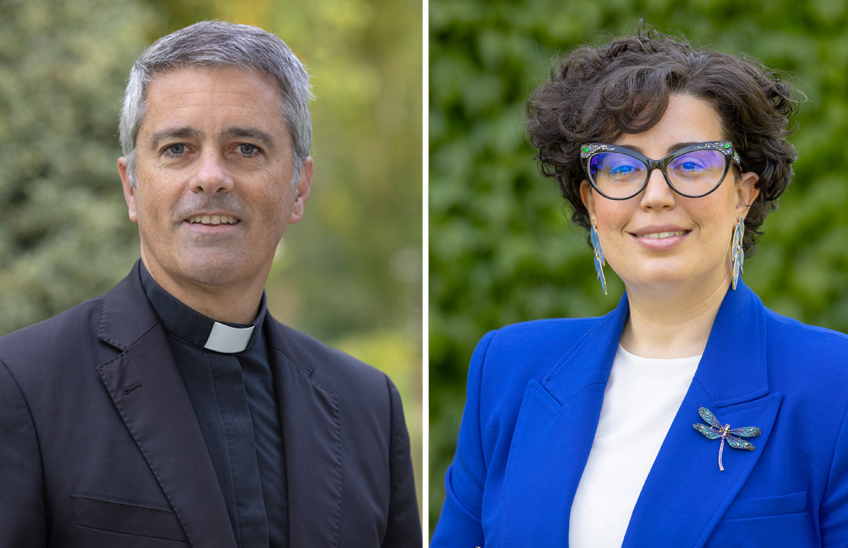Seven tools for a good accompaniment when there is a fracture in life
Psychologist and therapist Teresa Barrera participated in the academic workshop 'Psychology and spiritual life'.

FotoManuelCastells/From left to right, Wenceslao Vial, Montserrat Lafuente, Martiño Rodríguez-González, Teresa Barrera, Jorge Iriarte and José María Pardo.
12 | 11 | 2021
"Living in an integrated way allows people to be happy and to know what they have been called for". So says the psychologist and therapist, Teresa Barrera, a specialist at the Clinic of Doctor Carlos Chiclana in Madrid. Her words are framed in the workshop 'Psychology and spiritual life', in the session on 'Addressing the fractures in the coherence of Christian life', which she gave to more than 300 people at the School of Theology of the University of Navarra.
Professor Barrera pointed out that, in order to deal with fractures, we must look at the person in an integrated way, that is, "taking into account the three dimensions: psychological, biological and spiritual. And she recalled that we all have our fractures throughout our history: "It is something that we must assume and that also generates in us strengths".
For a good accompaniment, he considered it important to know what the person does, how he does it, why and for whom: "In this way we will understand the causes of the rupture in order to be able to reorder his behavior and for the person to live in freedom. Often it is not a question of attitude, and this makes the patient feel very guilty".
financial aid Regarding the origin of the incoherence he distinguished two cases: when it has a psychiatric root, such as Obsessive Compulsive Disorder (OCD) or Attention Deficit Hyperactivity Disorder (ADHD); or when the incoherence has a psychological root, in which case it is of great importance to know the history staff.
During his speech he also highlighted some psychological tools for a good accompaniment:
- The relationship that heals: The therapeutic relationship in itself is healing, therefore, in spiritual accompaniment it is also fundamental. It will allow a relationship of trust in which we will provide security and we will allow them to express themselves emotionally.
- Framework of spiritual accompaniment: A framework is needed to help the person being accompanied to understand what spiritual accompaniment is and its limits: what aspects are to be dealt with, areas of life to be discussed, times, place, frequency and mode of communication.
- Make a life line, which we will then join to the work of strengths and emotions. Ordering your life is core topic to know yourself and allows you to align life events. It can be done in different ways, by years, by crisis...
- Strengths: Our wounds generate strengths. It is important to reflect this, because if we only show where the problems are, the person becomes frustrated in the end. If we reinforce the attempts at solutions and the things that have been learned along the way, the person becomes empowered.
- Emotional awareness and regulation: It consists of helping to detect which emotions the person has in important moments, so that he/she integrates them in life and learns to regulate them. Naming emotions, defining them and expressing them allows the person to know him/herself.
- Empowering and reflective questions: We can use questions that help the person to reflect on themselves, the consequences of their actions, what they feel and get a glimpse of the strengths outlined in the previous section .
- The ideal self: To allow the person, through the map of his history where are the shortcomings and strengths, to know his originality and love himself, to know where he wants to direct his life in freedom.
The academic workshop was also attended by Dr. Jorge Iriarte, doctor, priest and professor at the School of Theology; Montserrat Lafuente, psychiatrist and psychotherapist, professor at the Abat Oliva-CEU University and at the seminar of Barcelona; Professor Wenceslao Vial, priest and professor at the Pontifical University of the Holy Cross (Rome); and the University professors José María Pardo and Martiño Rodríguez-González, who moderated the presentations.



